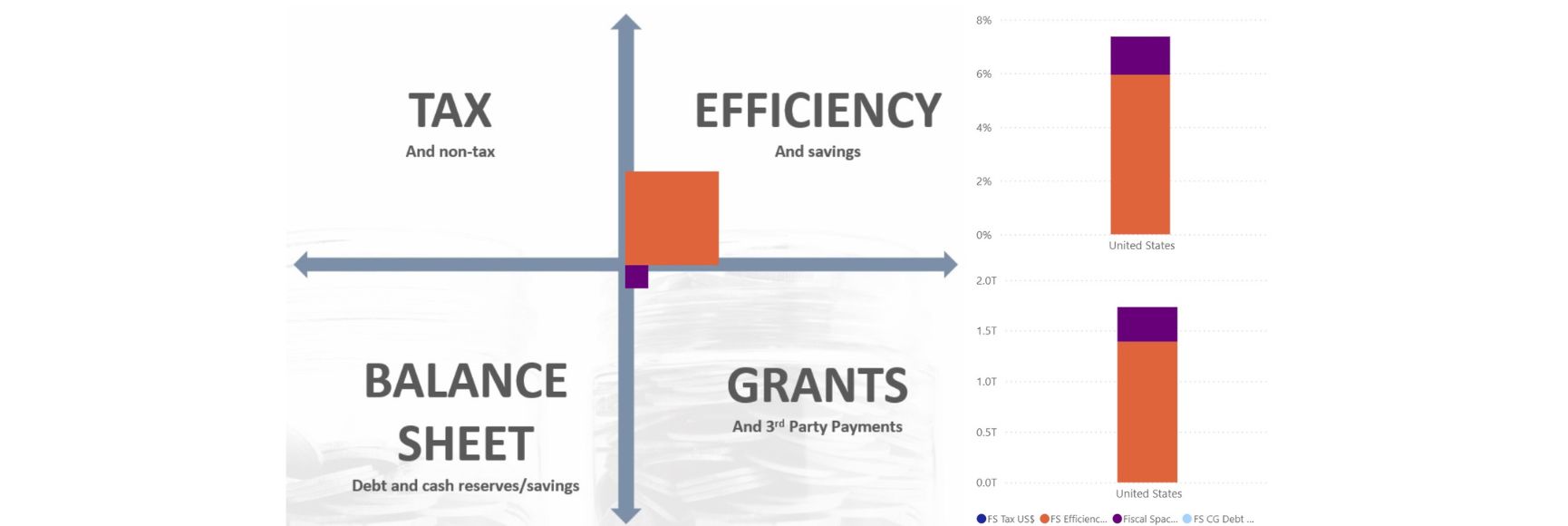Posted by Claude Wendling[1]
Spending reviews have become an increasingly popular tool in the European Union since the global financial crisis of 2007-08. A major policy lesson stemming from the crisis is indeed the need to enhance expenditure performance, which can be defined as the reinforced connection between funding decisions and policy priorities (shall this or that policy be funded with public money?) and subsequently between funding levels and results delivered to end-users (what is the value for public money?). Spending reviews seeking a 'smarter' expenditure allocation across national policy priorities - based on a selective and sustainable expenditure-based fiscal consolidation - appear to European policymakers as a particularly valuable instrument in this respect. A European Commission paper authored by Caroline Vandierendonck in July 2014 provides in this respect useful insights on the design, conduct and implementation of spending reviews and their development in Europe (http://ec.europa.eu/economy_finance/publications/economic_paper/2014/ecp525_en.htm).
Taking a long-term approach and at the risk of oversimplification, the diffusion of spending reviews in the European Union can be divided into three phases.
- 1. Before 2007, only a few "pioneer" countries had implemented spending reviews (Denmark, Finland, the Netherlands, Sweden, and the United Kingdom). Spending reviews had been launched in these countries as part of an effort to modernize budget preparation processes, often following situations of acute fiscal crisis.
- In the 2007-2012 period, at the time of or immediately following the global financial crisis, and facing strong fiscal consolidation needs, a few other countries (notably France, Ireland, Italy, Portugal, and Spain) followed suit. Inspiration from other Member States or from other continents (the Canadian example being a strong source of inspiration for the first French spending review, "Révision Générale des Politiques Publiques", which started in 2007) was crucial in this “second wave” of spending reviews.
- Since 2013-2014, a "third wave" of EU Member States, notably those who joined in or after 2004, has become involved in spending reviews. These countries include Croatia, Malta, Slovakia, Slovenia, and Romania.
Especially in this third phase, the European institutions, and in particular the European Commission, has played a key role in promoting the further diffusion of spending reviews across the 28 Member States of the EU. For the European Commission, spending reviews are encouraged as a way to reconcile fiscal constraints on the one hand, and improve the quality of public services on the other hand, thus going beyond the "austerity vs growth" narrative.
Hence, the EU economic governance framework has played and continues to play an important role in supporting spending reviews. Every year, on the basis of a proposal by the European Commission that is discussed among all Member States, a series of so-called "country-specific recommendations" are adopted and addressed to each individual Member State, outlining recommended reforms in the fields of fiscal, economic, and social policy. This economic governance framework, which was strengthened following the global financial crisis, is being used as a channel to promote structural reforms in EU Member States. Launching or making good use of a spending review process often features as part of country-specific recommendations in the fiscal field.
Most recently, spending reviews were given even more political prominence following a discussion at the Eurogroup (a regular meeting of Ministers of Finance of EU Member States belonging to the euro area) in Bratislava, in September 2016. This discussion, which was prepared by technical work done by the European Commission (http://www.consilium.europa.eu/en/meetings/eurogroup/2016/09/Spending-reviews_Commission_note_pdf/), led to an official Eurogroup statement available at https://www.neweurope.eu/press-release/eurogroup-statement-thematic-discussions-on-growth-and-jobs-common-principles-for-improving-expenditure-allocation/. The statement from the euro area ministers includes a clear call on the participating Member States "to actively use spending reviews", described as offering "a complementary means of supporting fiscal responsibility through reviewing priorities in public expenditure" and "contribut[ing] to a more growth-friendly composition of the budget".
The Eurogroup also endorsed a set of common principles, or "good practices", for the use of spending reviews, namely:
- strong and sustained political commitment;
- design and implementation of spending reviews following best practices, including notably a clear strategic mandate (precise objectives, scope covering a significant share of general government spending, a well-defined center of coordination), the use of pilots to build expertise, and the provision of adequate resources;
- regular and transparent monitoring and communication to the public, including transparent ex-post evaluation, and;
- consistency with annual and multiannual budget planning, and with a national fiscal framework that should include the principle of running regular spending reviews to inform budget preparation.
This interest of the European institutions for spending reviews is reflected in the work program of the European Commission's technical assistance service, the Structural Reform Support Service (SRSS), which provides or facilitates technical support to EU Member States on their request. Since its creation in July 2015, SRSS has become involved - in partnership with the IMF's Fiscal Affairs Department (FAD) and other technical assistance providers (including experts from the budget directorates of some EU Member States) - in spending review processes in several Member States. These Member States often seek technical assistance on the overall methodology of spending reviews (e.g., design issues, possible deliverables, guidelines on how to steer and manage the spending review process) and assistance on specific sectoral reviews.
To take a concrete example, FAD and SRSS have been providing ongoing support to the Ministry of Finance in Slovakia on a "Value for Money" exercise, which comprises a series of sectoral reviews aimed at covering the whole Slovak budget over the lifetime of the current parliament (2016-2019). A first set of reviews (on IT, transport and health) was launched in Spring 2016, and a recent FAD/SRSS mission in late November 2016 helped launch a second set of sectoral reviews (on education, environment, labour and welfare). All material related to the Slovak "Value for Money" exercise is available on the website of the Slovak Ministry of Finance at http://www.finance.gov.sk/Default.aspx?CatID=5907.
[1] Claude Wendling is coordinating technical assistance in the field of Revenue Administration and Public Financial Management within the European Commission's Structural Reform Support Service.
Note: The posts on the IMF PFM Blog should not be reported as representing the views of the IMF. The views expressed are those of the authors and do not necessarily represent those of the IMF or IMF policy.






